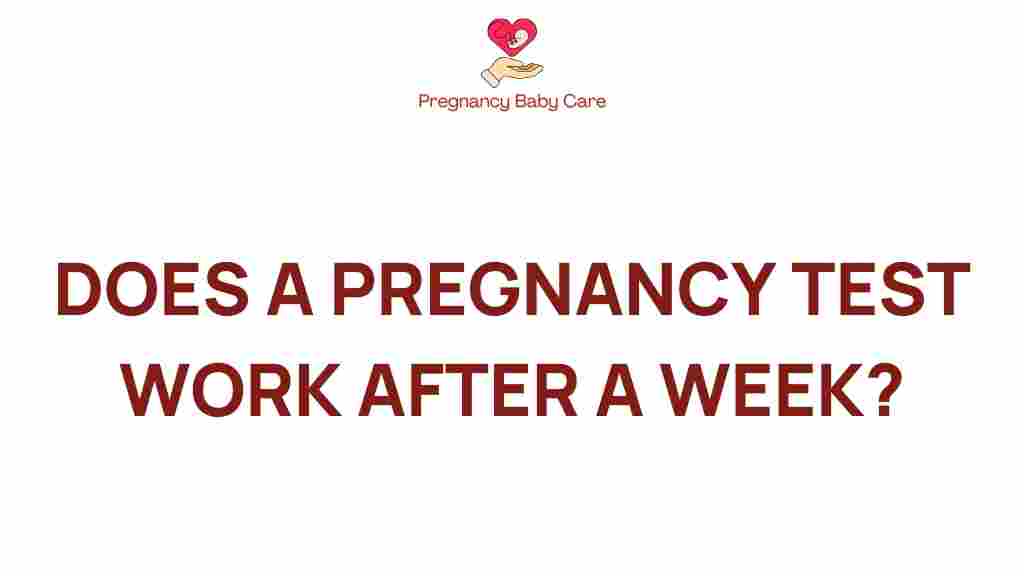The Accuracy of Pregnancy Tests: Do They Work After One Week?
When it comes to confirming a pregnancy, many people turn to at-home pregnancy tests. These tests are designed to detect the presence of the hormone human chorionic gonadotropin (hCG), which is produced shortly after a fertilized egg attaches to the uterine lining. But how accurate are these tests, especially when taken just one week after conception? In this article, we will explore the accuracy of pregnancy tests, the importance of timing, hormone levels, and the signs of pregnancy, while providing valuable insights into health and fertility.
Understanding Pregnancy Tests
Pregnancy tests are relatively simple to use and can provide results in just a few minutes. However, the accuracy of these tests can vary based on several factors, including:
- Timing of the test: When you take the test can significantly impact its accuracy.
- Hormone levels: The concentration of hCG in your urine is crucial for an accurate result.
- Test sensitivity: Different tests have varying sensitivities to hCG levels.
How Do Pregnancy Tests Work?
Pregnancy tests work by detecting hCG in your urine. When a woman becomes pregnant, hCG levels begin to rise rapidly. Most home tests can detect hCG levels of 20-25 mIU/mL, which typically occurs about a week after a missed period.
Can You Trust a Pregnancy Test After One Week?
Taking a pregnancy test one week after conception can yield varying results. Here’s what you need to know:
- Timing: A pregnancy test is most accurate when taken after a missed period, which is usually about two weeks after conception.
- Hormone levels: At one week post-conception, hCG levels may still be low, potentially leading to a false negative.
- Test type: More sensitive tests may provide more reliable results sooner.
For optimal accuracy, it’s recommended to wait until after your expected period to take a pregnancy test. This allows enough time for hCG levels to rise to detectable levels, thereby increasing the accuracy of the test.
What Affects the Accuracy of Pregnancy Tests?
Several factors can affect the accuracy of pregnancy tests:
- Test Instructions: Always follow the manufacturer’s instructions for best results.
- Expired Tests: Using an expired test can lead to inaccurate results.
- Urine Dilution: Diluted urine (from excessive fluid intake) may contain lower hCG concentrations.
Signs of Pregnancy: What to Look For
In addition to relying on a pregnancy test, it’s important to be aware of the early signs of pregnancy. These can include:
- Missed period
- Nausea or morning sickness
- Breast tenderness or swelling
- Fatigue
- Frequent urination
- Food cravings or aversions
If you experience several of these symptoms, it may be worth taking a pregnancy test, even if it is just one week after conception.
Step-by-Step Guide to Taking a Pregnancy Test
To ensure accurate results when taking a pregnancy test, follow these steps:
- Choose the Right Test: Select a test that is known for high sensitivity and accuracy.
- Timing: Wait until at least one week after your expected period for the best results.
- Collect Your Sample: Use your first morning urine for the most concentrated sample.
- Follow Instructions: Carefully read and follow the instructions provided with the test kit.
- Wait for Results: Allow the test to process for the specified time before reading the results.
Troubleshooting Common Issues with Pregnancy Tests
If you receive an unexpected result, consider these troubleshooting tips:
- False Negatives: If you suspect you are pregnant but receive a negative result, wait a few days and test again. Hormone levels may not yet be high enough to detect.
- False Positives: Rarely, some medical conditions can cause elevated hCG levels. If you receive a positive result and suspect you are not pregnant, consult your healthcare provider.
- Check the Expiration Date: Always ensure that your test is not expired, as this can affect accuracy.
For more information on understanding pregnancy tests, you can check out this helpful resource.
When to Consult a Healthcare Provider
If you have taken a pregnancy test and received a positive result, or if you have any concerns about your health, it’s important to consult a healthcare provider. They can conduct a blood test, which is more sensitive than a urine test, and provide further guidance on your next steps regarding your health and fertility.
Conclusion
In summary, while pregnancy tests can be a convenient way to check for pregnancy, their accuracy is heavily influenced by timing and hormone levels. Taking a test one week after conception may not yield the most reliable results due to potentially low hCG concentrations. For the best accuracy, it’s advisable to wait until after a missed period and to be aware of the signs of pregnancy.
Remember, if you are ever in doubt about the results or your health, consulting with a healthcare provider is crucial. They can offer you personalized advice and support as you navigate your health and fertility journey.
Stay informed and empowered regarding your reproductive health by understanding how pregnancy tests work and when to seek help!
This article is in the category Pregnancy and created by PregnancyBabyCare Team
